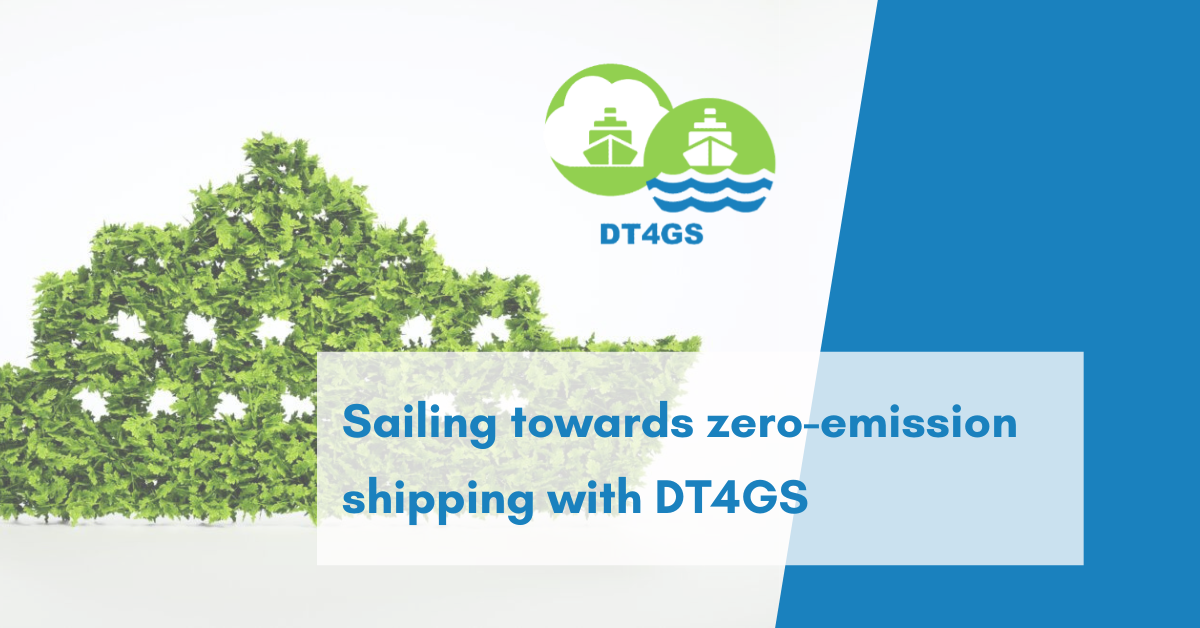Digital Twin for Green Shipping
DT4GS to cut CO2 emissions 20% by 2026
24-06-2022

"Athena" Research Center is a proud partner of Digital Twin for Green Shipping (DT4GS), a EC-funded research and innovation project led by Inlecom that was recently launched with the aim to supercharge shipping industry’s drive towards zero emissions. The project will be implemented by the Information Management Systems Institute (IMSI), under the supervision of Professor Ioannis Emiris, "Athena" RC President and General Director.
DT4GS is an innovative scheme to apply Digital Twin Technology, which aims to transform the maritime industry by helping improve efficiency and cut carbon emission. DT4GS will create realistic digital representations of ships, which are then tested and validated in four Living Labs (LLs) with different types of ships aiming at navigation/route, machinery and hull optimisation, through to energy management. Further improvements of the ships’/transport systems’ efficiency will be investigated via JIT arrival implementation.
Research will focus on applying digital twin technology to the entire lifecycle of ships, as the DT4GS project aims to cut CO2 emissions 20% by 2026, and significantly contribute towards achieving 55% CO2 emissions’ reduction from shipping by 2030, in line with the ultimate target of zero emissions by 2050.
Takis Katsoulakos, Director at Inlecom, said: “We are delighted to have won funding through the European Commission’s Green Deal scheme. This funding has enabled us to roll out an innovative Digital Twin technology research and development programme with our partners to help ensure the shipping industry can supercharge its journey to zero emissions. This is a fantastic opportunity to work together to achieve the goal of zero-emission shipping, while also addressing climate change, air pollution from ships, as well as the deterioration of waters and oceans.”
Prof. Ioannis Emiris, "Athena" RC President and General Director, said: "We are very glad to be part of this multidisciplinary consortium, working on the critical topic of green shipping. This has a very timely importance, especially for a maritime power such as Greece. It is especially useful for "Athena" RC, since we have a lot of mature technologies and innovation areas that are relevant for the maritime sector in general, and green shipping in particular. "Athena" RC is the only research center in Greece focusing on ICT and is quite dynamic in a wide range of directions from data management and AI to image and signal processing, and from geospatial optimization and forecasting to autonomous systems and robotics."
The LLs concept is based on a co-creation approach which will take ships through their full lifecycle, from planning to design, construction, operation, retrofitting, and decommissioning - all while looking to ensure green decision-making options are pursued when upgrading existing ships and building new ones. DT4GS will implement a zero-emission shipping methodology and virtual testing mechanism (Virtual Testbed) with decision support systems established that cover new builds, retrofits, and the shipping to port interface.
Georgia Tsiochantari, DT4GS project manager, said: “DT4GS aims to harmonise the green shipping efforts of shipping companies, shipyards, equipment manufacturers, ports, and policy makers, while facilitating the sharing of best practice. The scheme will support shipping companies in their net-zero shipping transition plans. “DT4GS will also help the shipping industry gain increased confidence in technical and economic predictions regarding green fuels and technology.”
The project involves 22 partners covering maritime transport industry specialists and associations, shipping companies, shipping digital twin providers, Universities and research centres from Italy, Belgium, France, Ireland, Cyprus, Spain, the Netherlands, Poland and Greece.